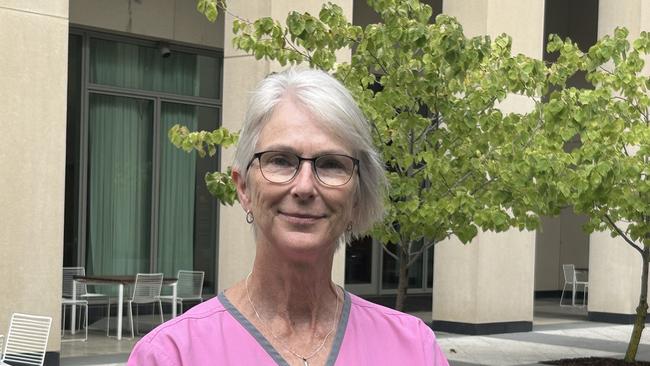Medicare and PBS rebates for nurse care
A new law has given a huge boost to Aussie nurses and the nation’s strained medical system.
Health
Don't miss out on the headlines from Health. Followed categories will be added to My News.
Highly trained nurses will soon be able to operate autonomously – without the sign off from doctors – in a major win for patients and our strained medical system.
A new law was introduced into parliament on Wednesday lifting restrictions which have previously hamstrung nurse practitioners with masters degrees or training spanning more than for 12 years.
They will be allowed to treat patients for simple fractures and illnesses and prescribe medicines which previously required a collaborative agreement with a doctor.
And for the first time, their patients will be allowed to claim Medicare and PBS rebates for the procedures.
It comes after a News Corp investigation found 75,000 nurses had quit the profession because they were denied Medicare payments, underpaid, verbally abused by patients and spoken down to by doctors.
“Removing this piece of legislation, known as the collaborative arrangements, means that nurse practitioners will no longer need to find another clinician to tick off their work, to look over their shoulder. This means that they will be able to practice autonomously,” Assistant Health Minister Ged Kearney said, ahead of the bill’s introduction.

There are around 2500 fully qualified nurse practitioners but around 500 of them are not working in this job because of restrictions placed on them, Ms Kearney said.
The government has also allocated nearly $50 million for scholarships for nurses and midwives to upgrade their qualifications to become nurse practitioners and endorsed midwives.
“Removing these unnecessary restrictions, which are completely out of step with international best practice, will allow highly-trained nurse practitioners and endorsed midwives to utilise their full-set of skills and experience and provide best quality care in the community for people when and where they need it,” Australian Nursing and Midwifery Federation (ANMF) Federal Secretary Annie Butler said.
Australian College of Nursing’s Chief Midwife Alison Weatherstone said freeing midwives from the need for collaborative practice meant “less out of pocket expenses for women who would no longer have to travel the long distances to access the care that they require from the midwifery workforce”.
In many country areas, nurses are often the only health practitioners on site and the changes will allow them to use their full scope of practice.

Tasmanian nurse practitioner Kerrie Duggan said she had been unable to work for eight months because she could not find a GP who would sign a collaborative agreement allowing her to work in a country area.
She said some doctors feared nurses might take business away from their own medical practice.
“Other doctors didn’t want to upset other doctors by signing a collaborative agreement with a nurse practitioner, they stick together,” she said.
Nurses at the GP practice she now runs in Cygnet treat 30-40 patients a week and it means children with minor injuries do not have to travel an hour to the Hobart General hospital.
To entice nurses back to the profession nurses are also seeking
• a 35 per cent pay rise.
• a change to retrograde laws – dubbed “professional slavery” – where Medicare pays nurses half of what a doctor gets for the same tasks;
• former nurses to be paid to update their qualifications – and not made start them from scratch;
• nursing students to be paid for their 800 hours of practical training.
Originally published as Medicare and PBS rebates for nurse care





